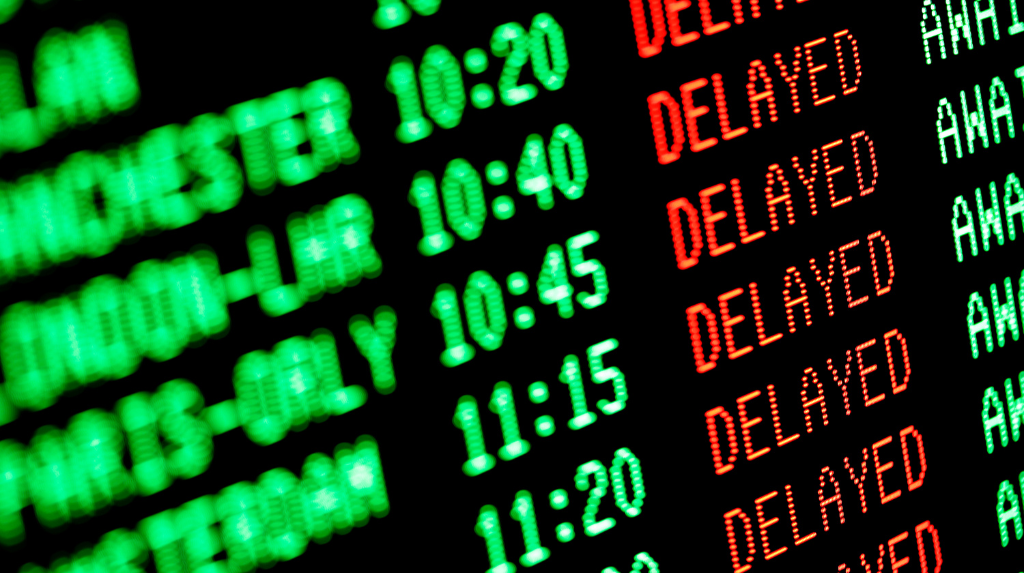
Cancellations, Delays, and Other Issues? Don’t Blame Your Local Airport
When travelers book a flight, they have a picture in their mind of how their journey will go, when they’ll arrive at their destination, and what they’ll need to do next. But what happens when issues arise at the airport? From January to September 2022, Bureau of Transportation Statistics (BTS) indicate that 20.62% of all flights were delayed and 2.76% were canceled – which means many travelers had to pivot on the fly.
At Advance Aviation, we partner with small and mid-size airports to help them increase their marketing capabilities and make valuable connections. Here, we’ll help travelers better understand the reasons for common delays and the role airports play in fostering smooth experiences.
The Airport-Airline Relationship
First, travelers must understand the relationship between airports and airlines and how they work together. Each one depends on the other to thrive, but they serve travelers in different ways. Knowing who to turn to when plans are disrupted can help minimize confusion and streamline the efforts to remedy the issue at hand.
The airlines partnered with an airport are directly responsible for a safe, efficient passenger journey. While an airline is tasked with many key aspects of the travel experience – such as canceling and delaying flights –other primary duties include:
- Setting airfare prices
- Selling plane tickets
- Updating flight schedules
- Staffing ticket counters and gates
- Loading and unloading baggage, as well as handling lost luggage claims
- Airplane repairs, maintenance, and de-icing
United States airports are the link between the traveler and the airline – essentially a service coordinator. They maintain local networks and facilities on the ground, communicate with travelers, and cultivate a comfortable travel experience, which is especially important in the face of unexpected cancellations and delays.
While airports have little control over airline operations and realize performance issues impact everyone, they make every effort to bring issues to the airline’s attention and help in any way they can. With an experienced, agile marketing team, an airport can craft messaging that helps travelers and airlines in times of need.
Common Causes for Flight Disruptions
When a flight is delayed, or canceled altogether, it can be frustrating. However, there are many reasons travel plans may be disrupted, making preparedness the responsibility of travelers, airports, and airlines. Common causes for airplane delays and cancellations include:
Security Issues
Heightened security is for everyone’s benefit, but delays can happen when concerns arise. What’s more, this can be compounded during the holidays and other times of peak airline volume, when the security lines are typically longer.
Extreme Weather
Weather conditions are a familiar reason for grounded planes. This could mean strong winds, rain, or snow. Even if it’s sunny where you are now, your destination may be experiencing less-than-ideal flying conditions. This may feel inconvenient, but the decision to wait it out is for everyone’s safety.
Staffing and Pilot Shortages
Airlines need pilots, crew, maintenance personnel, and National Aviation System (NAS) staffing to run. If an aviation company is experiencing a staffing shortage, this can increase the number of delays and cancellations within an airport.
Higher Travel Demand
When more people want to fly, aircraft schedules get tighter. This means that if one aircraft with multiple flights per day with minimal downtime is delayed for a few hours, future flights are more likely to be impacted.
Tips for Air Travelers
While passengers have little control over many of the delays and cancellations, there are some steps you can take to help ensure a smooth journey to your destination. Consider the following the next time you book a flight:
- Go nonstop: Seeking nonstop flights helps travelers avoid potential delays between switching planes.
- Board early: If you catch the first flight out, you can avoid boarding a plane that may be delayed at a previous destination.
- Know your airline: Research airlines with a history of arriving on time, as well as ones with multiple flights per day that will be better able to get you on a later flight if needed.
- Create a backup plan: When the unexpected happens, a backup plan can help keep you moving – even if your plane isn’t.
Marketing Strategies for Airports
No matter what’s on the flight schedule, an airport’s communication strategy plays a key role in the traveler’s experience. As part of their efforts, airports can create messaging that helps keep travelers informed and feel at ease – especially when challenges arise. This cultivates a positive attitude toward the facility and its commitment to service, while also streamlining operations.
If you’re an airport, let Advance Aviation help you become a success story with a reputation for providing the best possible experiences for your travelers. Contact us to find out more about how our innovative, adaptive marketing services give small and mid-sized facilities the advantage.
